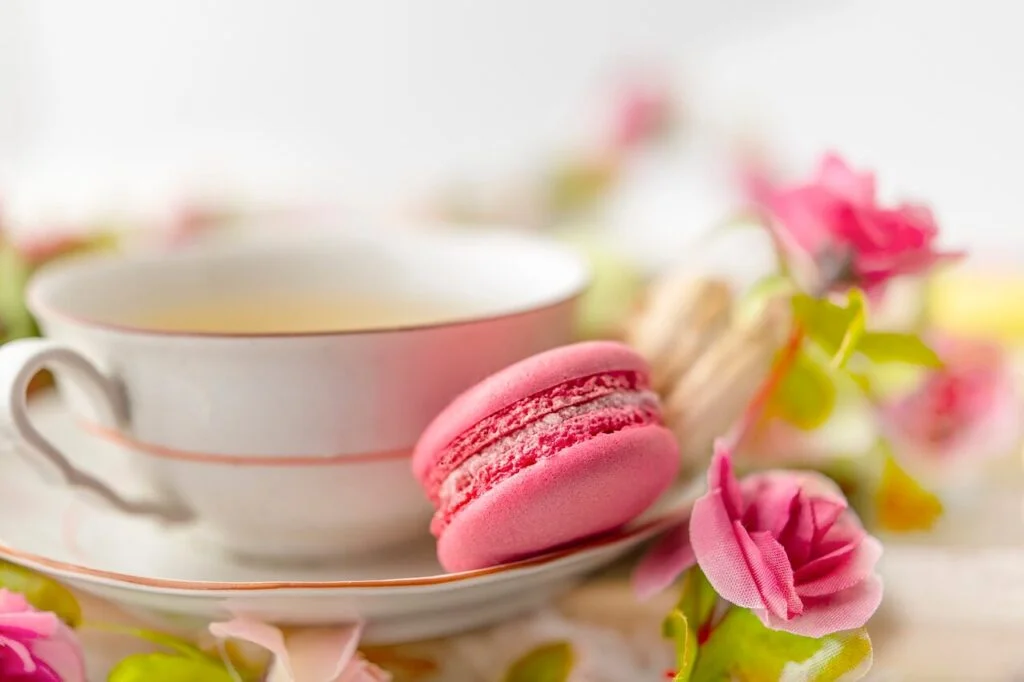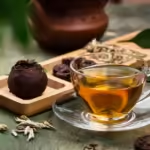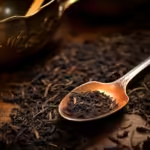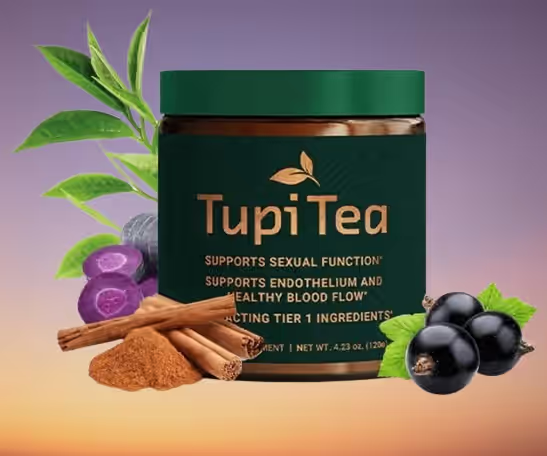Table of Contents
What is Yellow Tea?
Yellow tea, a lesser-known variety within the tea family, traces its origins back to China, where it has been cherished for centuries. This distinctive type of tea is produced primarily in the Hunan, Fujian, and Zhejiang provinces, where traditional production methods have been preserved. Yellow tea is particularly notable for its unique and intricate processing techniques, which distinguish it from more widely recognized varieties such as green and white tea, while also contributing to its yellow tea benefits.
The production of yellow tea involves a careful and time-consuming process. Initially, fresh tea leaves are picked during the early spring, when their flavor and quality are at their peak. These leaves undergo a process called “withering,” similar to that of white tea. However, what sets yellow tea apart is an additional step known as “sealing yellow.” This process involves wrapping the leaves in moist cloths, allowing them to undergo a gentle fermentation. This fermentation enhances the tea’s flavor profile and contributes to its characteristic yellow hue, further adding to the potential yellow tea benefits for consumers.
In terms of its characteristics, yellow tea possesses a mellow, sweet taste that is often described as smooth and creamy. The aroma is usually floral, with subtle grassy notes that reflect its green tea origins. Its flavor complexity and lower caffeine content make it an appealing option for tea enthusiasts seeking to explore varieties beyond the more popular green and black teas while reaping the numerous yellow tea benefits.
The rising popularity of yellow tea can be attributed to its unique attributes and potential health benefits, which include antioxidants and possible digestive aids. As consumers increasingly seek healthier beverage options, yellow tea benefits are gaining attention, positioning this exquisite tea as a worthy addition to the global tea market. Understanding the origins and production processes of yellow tea helps explain its endemic value and the reasons behind its growing allure among tea connoisseurs worldwide.
👉 Discover a Rare Treasure – Sip Premium Yellow Tea Today! 👈
Nutritional Profile of Yellow Tea
Yellow tea, a rare and valued beverage primarily produced in China, possesses a unique nutritional profile that offers a variety of health benefits. This particular tea type is known for its delicate processing method, which partially oxidizes the leaves, resulting in a flavor and aroma that are distinct from other teas. Rich in antioxidants, yellow tea contains numerous bioactive compounds that contribute to overall health and wellness.
One of the prominent components found in yellow tea is catechins, a type of flavonoid. These antioxidants are renowned for their potential in combating oxidative stress and reducing inflammation within the body. The presence of catechins has been linked to improved cardiovascular health, as they may help lower cholesterol levels and enhance blood circulation. In addition to catechins, yellow tea is also a source of polyphenols, another class of antioxidants that contribute to its health benefits. Polyphenols have been linked to a reduced risk of chronic diseases, including certain cancers and heart ailments.
Furthermore, yellow tea is rich in vitamins and minerals, including vitamin C, which plays a crucial role in bolstering the immune system. This vitamin assists the body in fighting infections and supports overall health. Additionally, yellow tea contains essential minerals such as potassium and magnesium, which are vital for various bodily functions, including nerve function and muscle contraction.
Moreover, the moderate caffeine content found in yellow tea may offer benefits such as enhanced mental clarity and focus without the jitters associated with other caffeinated beverages. This combination of nutrients makes yellow tea not only a delightful beverage but also a powerful ally in promoting well-being.
Health Benefits of Yellow Tea

Yellow tea, a lesser-known variety of tea, is gaining recognition for its impressive array of health benefits. This unique beverage is characterized by its slightly fermented leaves, which offer a distinct flavor and an array of positive health properties. One of the primary advantages of yellow tea is its potential to improve digestion. The subtle fermentation process helps to enhance the bioavailability of key nutrients, making it easier for the body to absorb them. Studies suggest that the consumption of yellow tea can stimulate digestive enzymes, which may lead to improved gut health and alleviation of common digestive issues such as bloating or discomfort.
Another significant benefit associated with yellow tea is its ability to enhance metabolism. Research indicates that certain compounds found in yellow tea, including catechins, can boost metabolic rates, thereby aiding in calorie burning. This metabolic boost can be particularly beneficial for individuals looking to maintain or lose weight. The effects of yellow tea on metabolism may be attributed to its catechin content, which has been shown to enhance fat oxidation and support weight management when combined with a balanced diet and physical activity.
Furthermore, yellow tea plays a notable role in detoxification processes within the body. The antioxidants present in yellow tea, particularly flavonoids, help in neutralizing harmful free radicals. This action not only contributes to better overall health but also supports the body’s natural detoxification systems, promoting the elimination of toxins. Regular consumption of yellow tea can thus be an integral part of a healthy lifestyle, contributing to improved well-being in a holistic manner.
In conclusion, the remarkable health benefits of yellow tea, including improved digestion, enhanced metabolism, and its supportive role in detoxification, make it a worthy addition to anyone’s diet. By incorporating this tea into your daily routine, you may experience an overall boost in health and vitality.
👉 Refined Elegance in Every Cup – Brew Yellow Tea Perfection! 👈
Yellow Tea and Mental Health
The consumption of yellow tea has been recognized for its numerous benefits, particularly concerning mental health. This unique tea, known for its delicate flavor and complex production process, contains a variety of components that may contribute to enhanced mental well-being. One of the key benefits associated with yellow tea is its potential to increase focus. The moderate caffeine content in yellow tea can stimulate alertness and mental clarity, making it an ideal accompaniment for those engaging in tasks requiring concentration.
Moreover, yellow tea is rich in L-theanine, an amino acid renowned for its calming effects on the brain. This compound plays a significant role in reducing stress levels, promoting relaxation without sedation. By fostering a state of calmness, yellow tea can mitigate anxiety and improve one’s overall mood. This characteristic makes it a valuable ally for individuals facing the pressures of daily life or those seeking a reprieve from intense work or study sessions.
Furthermore, incorporating yellow tea into a daily routine could support emotional stability. The subtle antioxidants present in yellow tea may contribute to a healthier brain, potentially impacting mood regulation. As such, drinking this particular blend could help create a more balanced emotional state, giving rise to a sense of well-being.
In essence, the benefits of yellow tea extend beyond physical health, making it a promising natural remedy for mental health enhancement. By incorporating yellow tea into one’s lifestyle, individuals may experience improved focus, reduced stress, and an uplifted mood, making it an effective companion in the quest for mental clarity and emotional resilience.
Boosting Immunity with Yellow Tea
Yellow tea, a rare and flavorful beverage, is gaining recognition for its numerous health benefits, particularly in enhancing the immune system. The unique processing of yellow tea, which involves a moderate oxidation process, allows it to retain a high level of antioxidants. These antioxidants, specifically catechins, play a pivotal role in protecting the body against free radicals and oxidative stress, which can lead to various illnesses. By incorporating yellow tea into your daily routine, you can strengthen your body’s natural defenses and promote overall health.
The antioxidant properties found in yellow tea help combat harmful pathogens and support the immune system’s function. Studies have shown that regular consumption of yellow tea can elevate the levels of specific immune cells, improving the body’s ability to fend off infections. Furthermore, the polyphenols present in yellow tea have anti-inflammatory effects, which may contribute to quicker recovery times from illnesses and a reduced risk of developing chronic diseases related to inflammation.
To harness the full potential of yellow tea’s immunity-boosting effects, it is essential to incorporate it into your daily dietary habits. One effective way is to start your morning with a cup of freshly brewed yellow tea instead of coffee or black tea. This smooth transition not only helps with hydration but also prepares your body for the day ahead. Additionally, consider substituting sugary beverages with yellow tea; doing so can limit your intake of empty calories while reaping the health benefits associated with this special tea.
Moreover, incorporating yellow tea into meals, such as using it to marinate proteins or in salad dressings, can introduce its benefits in a diverse manner. With its distinct flavor, yellow tea can enlighten everyday dishes while contributing positively to immune health. By making yellow tea a consistent part of your lifestyle, you set the stage for a resilient immune system ready to combat daily challenges.
👉 The Secret of Ancient Royals – Taste Yellow Tea Luxury! 👈
Yellow Tea and Skin Health
Yellow tea, a lesser-known variety of tea, is celebrated not only for its unique flavor but also for its remarkable health benefits, particularly for the skin. One of the standout properties of yellow tea is its high level of antioxidants, which play a crucial role in combating oxidative stress. This stress is a leading contributor to skin aging, as it accelerates the formation of wrinkles and fine lines. By incorporating yellow tea into one’s daily routine, individuals may find improvements in skin elasticity and a reduction in the appearance of age-related imperfections.
Another significant benefit of yellow tea is its hydrating effects. When consumed regularly, this tea can help maintain skin moisture levels. Proper hydration is essential for achieving a radiant complexion, as well-hydrated skin appears plumper and more vibrant. Additionally, the polyphenols present in yellow tea can help improve blood circulation, which ensures that essential nutrients reach the skin effectively, further promoting a healthy glow.
Moreover, yellow tea may offer potential benefits for managing acne and other skin conditions. Its anti-inflammatory properties can soothe flare-ups, while the astringent qualities help in tightening pores and controlling excess oil production. For those looking to harness the benefits of yellow tea in a topical manner, creating a face mask or toner infused with the tea can provide an invigorating treatment that compliments internal consumption. The synergy between drinking yellow tea and applying it externally can amplify its positive effects on skin health.
In summary, the benefits of yellow tea for skin health are multifaceted, encompassing anti-aging properties, improved hydration, and potential solutions for acne. The incorporation of yellow tea into both dietary and skincare routines may contribute to enhanced skin vitality and overall appearance, making it a valuable addition to one’s wellness arsenal.
How to Brew Yellow Tea

Brewing yellow tea requires careful attention to detail in order to fully unlock its unique flavor and numerous yellow tea benefits. The process is relatively straightforward, yet it is essential to follow certain steps to ensure optimal results.
Start by selecting high-quality yellow tea leaves, as the quality of the tea will significantly affect the outcome. Ideally, you should choose loose-leaf tea rather than tea bags for the best flavor experience. Once you have your tea, gather your brewing equipment, including a teapot or a gaiwan, and make sure to have a measuring spoon, a kettle, and a timer handy.
Water temperature is a critical factor in brewing yellow tea. Unlike black tea, which benefits from boiling water, yellow tea should be brewed with water heated to a range of 160°F to 175°F (70°C to 80°C). This gentler temperature allows the leaves to unfurl slowly, releasing their delicate flavors and beneficial compounds without overshadowing them. Using a thermometer can help achieve the perfect temperature.
Next, measure out the right amount of tea leaves. A general guideline is to use approximately one teaspoon of yellow tea leaves for every 6 to 8 ounces of water. Once you have the correct amount, place the leaves into your brewing vessel.
For steeping time, start with three to five minutes, adjusting based on your personal taste preferences. If you desire a stronger flavor, consider steeping for a longer period, but be cautious, as over-steeping can lead to bitterness. After steeping, remove the leaves immediately to stop the brewing process.
Finally, pour the brewed yellow tea into your cup and enjoy. The result should be a fragrant, mellow beverage that showcases the subtle nuances of the tea while delivering various yellow tea benefits, such as antioxidants and enhanced mental clarity.
👉 For the True Tea Connoisseur – Indulge in Yellow Tea! 👈
Incorporating Yellow Tea into Your Diet
Integrating yellow tea into your daily diet can be a delightful and healthful endeavor. Traditionally consumed in China, yellow tea is celebrated not only for its unique flavor but also for its numerous yellow tea benefits, which include its antioxidant properties and potential health advantages. By exploring diverse methods of incorporation, one can easily enjoy its qualities while enhancing their meal plans.
One of the simplest ways to enjoy yellow tea is by preparing it as a traditional beverage. To brew yellow tea, steep the leaves in hot water for three to five minutes, allowing the flavors to infuse. The warmth of the tea makes it a perfect choice for morning or afternoon relaxation. Additionally, it can be enjoyed iced, especially during warmer months, offering a refreshing twist that is both hydrating and revitalizing.
Beyond traditional brewing, yellow tea can be creatively incorporated into various recipes. For instance, consider using brewed yellow tea as a base for smoothies. Combining it with fruits such as banana, mango, or spinach not only enhances the nutritional value of your drink but also adds a subtle complexity to the flavor profile. You can also experiment with adding yogurt or almond milk for a creamy texture.
For those with a penchant for baking, yellow tea can serve as an interesting ingredient in desserts. Infuse your cake batters or cookie mixes with brewed yellow tea to impart a gentle, earthy note to your treats. Creating yellow tea-infused syrup can also elevate your dessert presentations, drizzled over ice cream or fruit salads.
Overall, the versatility of yellow tea provides ample opportunities for innovation in the kitchen. Whether consumed traditionally or through imaginative recipes, incorporating yellow tea into your diet allows you to reap its benefits while enjoying a variety of delicious meals and beverages.
Conclusion: Embracing the Yellow Tea Benefits
Throughout this exploration of the remarkable yellow tea benefits, we have highlighted several aspects that underscore its significance as a health-promoting beverage. Distinguished for its unique production process and delicate flavor, yellow tea is not only an enjoyable drink but also a reservoir of health-enhancing properties. The antioxidants present in yellow tea contribute significantly to its ability to combat oxidative stress and improve overall well-being.
One of the primary advantages of incorporating yellow tea into your daily regimen is its potential to boost metabolism and aid in weight management. The catechins found in this tea variant are known for their ability to facilitate fat oxidation, making it a valuable ally for those pursuing a healthier lifestyle. Additionally, yellow tea benefits include supporting cardiovascular health by promoting healthy circulation and reducing the risk of heart-related conditions.
Moreover, the neuroprotective effects associated with yellow tea highlight its role in enhancing cognitive function and potentially lowering the risk of neurodegenerative diseases. The calming properties of yellow tea can also aid in stress reduction, contributing to improved mental clarity and emotional stability.
As we have seen, the cultural significance of yellow tea, especially in Asian traditions, adds depth to its value. It serves not only as a source of nourishment but also as a gateway to rituals and social connections, promoting a sense of community and mindfulness in its consumption. By considering the integration of yellow tea into your health routine, you are embracing a beverage steeped in tradition while reaping its myriad yellow tea benefits. This unique tea offers an opportunity for personal wellness and a touch of cultural appreciation.













